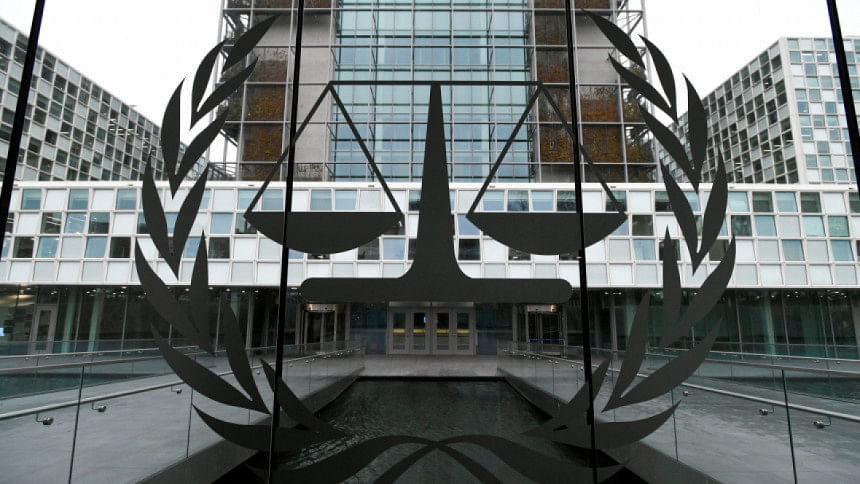Lawyer files complaint against Hasina at The Hague

A lawyer has filed a complaint with the International Criminal Court at The Hague accusing former prime minister Sheikh Hasina, the ministers of her government and its associated state actors of crimes against humanity.
Asraful Arafin, a lawyer of London's 3 Bolt Court Chambers, filed the case under Article 15 of Rome Statute on October 28, seeking an independent investigation into what he mentioned as targeted extrajudicial killings during the mass uprising, torture in secret detention centres, and and other atrocities.
He requested the ICC to issue arrest warrants for key suspects to prevent further impunity, according to a media statement.
In Bangladesh, over 200 murder cases have been filed since she fled to India on August 5.
Lawyers say the ICC may take cognisance of the complaint if it deems Bangladesh courts unable to do it. Member states of the UN Security Council have veto power over the ICC.
The statement said Bangladesh witnessed a shocking tragedy when the government launched a brutal crackdown on peaceful protesters in July and August.
"These forces indiscriminately used firearms, rubber bullets, sound grenades, and lethal weapons like birdshot pellets and live ammunition," read the statement.
Over 1,400 civilians were reportedly killed, and 22,000 injured, it said, adding that at least 92 individuals were blinded and hundreds suffered life-altering injuries.
The then government imposed a nationwide internet blackout and restricted all communications, obstructing efforts to document the violence, it added.
"These systematic extrajudicial killings, disappearances, and acts of torture, including alleged abuses at secret detention centres like Ayna Ghar, amount to crimes against humanity under international law, reflecting a calculated effort to eliminate political opposition and silence dissent."
There is considerable doubt over the ability of Bangladesh's judicial system to conduct an impartial investigation into these serious offences because a large number of the country's law enforcement and state officials were chosen by the Hasina administration.
Also, the interim government is expected to remain in place until the next parliamentary election, after which a new political government may assume power, potentially compromising justice for political expediency.
"Moreover, with Sheikh Hasina currently residing in India and due to her political ties there, enforcing any domestic conviction remains uncertain. However, an international arrest warrant could exert pressure on India to cooperate with the global community."
In February 2014, British lawyer Toby Cadman filed a request on behalf of the International Coalition for Freedoms of Rights to the ICC, accusing the Awami League government of "committing mass killing and crimes against humanity".
The ICC rejected that request.

 For all latest news, follow The Daily Star's Google News channel.
For all latest news, follow The Daily Star's Google News channel. 



Comments